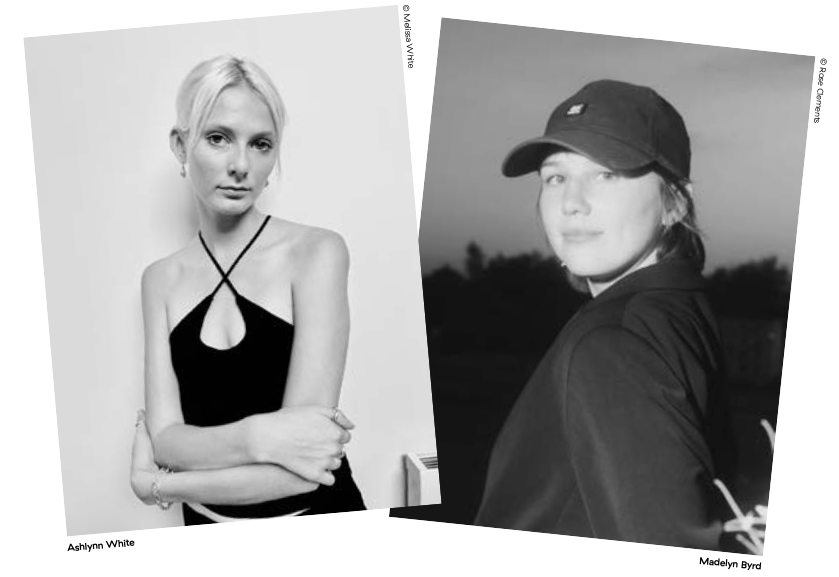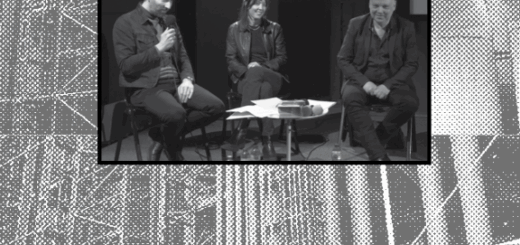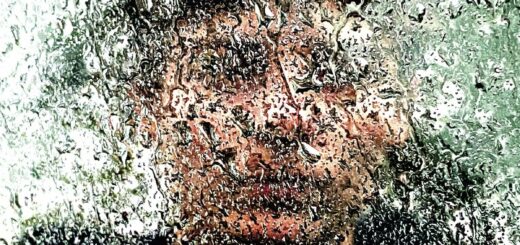Gravity Pleasure: an interview with Madelyn Byrd & Ashlynn White

By Fanny Chiarello
How did you come up with the name Gravity Pleasure?
Madelyn Byrd: First, I just love the combination of words–gravity being something quite abstract yet weighty, and pleasure being so rooted in the body but also quite abstract and weighty! Both are about connection, whether it’s to yourself, a lover, or the planet.
The name Gravity Pleasure was first used in an event series I curated a few years ago. Musicians and DJs live-scored satellite imagery of Earth projected on the wall or ceiling. The concept behind it was to shift scale to bond with Earth as a secondary body that we all belong to, inspired by Daisy Hildyard’s The Second Body. I still spend a lot of time on Google Earth, zoomed in, lost in Earth’s topographies– the experience always feels quite emotional, like getting to know somebody intimately. Occasionally, I end up at a familiar lake, glacier, or beach – it feels like an old friend. I don’t know the coordinates, the country, or even the continent I’m on, but the patterns feel familiar and could somehow be mapped onto human bodies.
There’s an undertone of ecosensuality.
By connecting to our planet as a living organism–as a being who requires care and love and all the same things we do–we hopefully begin to see the planet and our relationship as akin to a lover or friend, requiring reciprocity rather than the extractive relationship that might stem from viewing our planet as our mother who would love and give unconditionally.
When we started working on a label together, I mentioned the name and felt that it might still resonate with our shared love of ecology and an intrinsic desire to bring sustainability and climate justice to all the work we do, and Ashlynn agreed 🙂
Co-founding a label requires great confidence in each other. Had you already collaborated before?
Ashlynn White: So this is kind of a crazy story for me. Basically, I was co-managing a community radio station back in 2021/22, and Maddy was the first guest I ever had on the station. I was sooo excited, I thought they were the coolest person ever, and they complimented my top, it meant so much to me haha. I remember just sitting in the studio, eyes closed, fully enveloped in the world they were creating with the mix. We then ended up at the pub till 2am after their gig. This was before I was really even DJing.
Fast forward two years, and we got booked to play a gig together in Amsterdam, the promoters didn’t even know we knew each other; they just thought we were a good fit. And they were absolutely right! We share so much in common, musically and non-musically, and it’s been the most incredible thing to work together and get to know each other better.
M: Yeah, it’s definitely one of those friendships/collaborations that feels meant to be. We’re very kindred in so many ways, which translates to how we work together. We’re both super motivated and love to get dreamy and organised at the same time. And we both have strong preferences and opinions, but we’re always willing to hear the other person out if we disagree. Knowing that the collaboration is stronger than we would be alone makes it easy to work well together with confidence and trust.
I know a label takes a lot of time: does Gravity Pleasure impact your work as artists?
M: Yeah, it’s a lot of time, but we’re both very passionate about it, and it ends up fueling my creative practice in so many ways. Spending hours on Zoom chats going over our budget, talking about our next VA, ranting about parts of the music scene that still need to be diversified, etc., is all blossoming into shared meaning and purpose. Plus, we don’t live in the same place, so it’s an excuse to hang out with each other. Sometimes it feels daunting, and some tasks are less fun than others, but it’s honestly my favourite thing I’m doing right now. It’s also very inspiring to interact with artists who are doing incredible work, and it motivates me to keep going with my own work as Slowfoam.
Now here are the interview questions so to speak. Feel free to leave aside the ones that don’t interest you; again, I only have one page, precisely 1,000 words, so I guess I’m asking too many questions anyway. Can Water Bodies be considered your label’s manifesto?
A: I would say absolutely! We are both hydrofeminists who feel strongly about the connection between water, body, and earth, and this was something we wanted to incorporate into our label. All water bodies – me, you, animals, plants, rivers, seas, oceans, lakes, puddles – are intertwined and connected. In a way, that’s what I envision for our label and the music we release: the way it can connect and intertwine, creating a wider community than just us as individuals.
We won’t necessarily always be water-focused, as we want to explore other mediums too, but I can say with quite a lot of confidence that we’ll always stay rooted in ecofeminism.
M: I agree with Ashlynn. It’s a manifesto of sorts, but we’re both curious people, and our label will grow with our curiosities and interests. For now, hydrofeminism is a theory-driven playspace that excites us – it’s an apparatus for understanding our collective interconnectedness. Plus, the theme resonated deeply with all of the artists who were part of the compilation. It’s beautiful that water evokes such a shared emotional response.
There are many things to explore, and I hope we can expand in any direction that feels aligned with our growth as individuals and as a label. It’s more sustainable to give ourselves, and our manifesto, the freedom to evolve organically over time.
Do you intend to focus on compilations?
A: We are hoping to release one compilation a year 🙂 But we also want to support individual artists. Both are so nice, with comps you get to work with a large number of artists and bring them all together into a community, whereas with individual releases, you can focus on an individual and give them the time and care to support their growth as an artist. So definitely interested in both!
M: I’ll echo what Ashlynn said! Compilations are a wonderful way to connect FLINTA artists and create a sense of community, and they’re a strong way to showcase a range of musical perspectives. So we’ll continue to do them, but we’re also excited to work with individuals to support them in their creative journey.
Will your editorial line be mostly aesthetic, political, or is gender your main concern?
A: Gravity Pleasure was born out of frustration with the lack of FLINTA*-run labels in the experimental/ambient music world, so this will always be our main focus. That doesn’t mean we won’t use our platform for other things too, though 🙂
M: All of the above 🙂 We’ll use aesthetics to support our mission of gender diversity in ambient/experimental music, which is largely political. Since we started the label, we’re even more sensitive to how many platforms and spaces lack diversity, sometimes in pretty extreme ways – e.g. a ‘Best Of’ list that’s 90% cis-men. But these power dynamics can also be mapped onto larger issues that are ecological and political; these tendrils are all connected, which is something that queer and diverse spaces intuitively understand. Aesthetics, gender diversity, and politics are intertwining threads in the same braid.
What triggered your decision to launch a label?
A: It was really just born out of frustration and desire to change things – the morning after the gig together in Amsterdam, we had a chat about how frustrated we were that so many labels are still run by cis-white dudes, releasing mainly music by cis-white dudes, and being reviewed and written about by… cis-white dudes haha. And in our frustration, we said, “Well, if we’re going to complain about it, why not just make that change?”
I think there was already a lot of respect between us, as we share so many values and passions, so when we realised we’d both been having these same thoughts, it was quite a simple decision to start it. I remember walking to the train station, slightly hungover, heading to do a radio show, and sending Maddy a voice message about how serious I was about it and how I thought we had the skills to do it together. I remember thinking, “If these men do it, then we can too.” And that was kind of it, we started meeting regularly and were just so inspired by each other and excited by everything!
M: Yes, I’ve been pretty disheartened by the lack of diversity and awareness in music spaces. If we can’t make the change here, I don’t know that I trust us to be able to make these changes on a larger scale.
Creativity in general, and specifically music, is a powerful starting point for social transformation at large… it can inspire, heal, and connect us. So I’m kind of surprised more people aren’t concerned with which voices we’re hearing, and why we aren’t all uplifting marginalized voices at this time. We need visions for other ways of being in the world right now, and the people who are going to have the best solutions are those who have been the most oppressed. We can’t continue to reproduce the same aesthetics and ways of being in the world; it isn’t sustainable. So, fighting for more diversity in our community gives me hope more than anything.
Starting a label or platform is something I’ve thought about for almost a decade! But doing it alone felt daunting and lonely. When Ashlynn and I first talked about it, a light went on. As I mentioned above, we’re both very kindred in so many ways. I instinctively trusted us to be able to do it together. And, working on it together is fun.
Ecofeminism has been the basis of many exciting projects lately; can you explain why you chose to focus specifically on water and hydrofeminism?
A: Well, this one is a bit easy for me as I am a marine biologist! So I’m just obsessed with everything water. I’m doing a master’s degree and have been extremely frustrated by the rigidity of the structure and the lack of creativity and passion in the field, so when I found out about hydrofeminism, it felt like a little safe haven for me. It was exactly what I felt was lacking in the harder marine biology science world.
So when I talked to Maddy, and they already knew of it and had read up on it, it felt like we shared this little exciting world I had just been discovering. So it really just lined up with our passions and our love for aquatic worlds.
M: Yes, I’m also obsessed with water 🙂 What excites me about hydrofeminism is how it takes ecofeminism’s ethics of care and justice and immerses them in a watery lens, and water is something that unifies us. We all carry it within our bodies and have collective relationships to rivers, oceans, rains, bogs, glaciers—but we each also have deeply personal encounters with it. Some of my most profound and transformative moments have taken place in or around water, which has imprinted a deep sense of home and belonging. I think this is the case for so many of us. To tie it back into Water Bodies being a sort of mantra, I believe the emotions of these experiences can inspire us to engage in a porous, vulnerable, interconnected way of relating to each other and our planet. Life, human and nonhuman, is dependent on this greater ideological shift.
How did you select the artists for Water Bodies? They live all over the world: did you wish to offer some kind of sample of international FLINTA creation?
A: Honestly, it just happened really naturally. We both wrote a list of artists we love and then just narrowed it down from there. Diversity was a big consideration, but it happened naturally from the artists we already loved and listened to!
M: Yeah, for this first compilation, we didn’t overthink it too much… we just wanted to showcase the incredible talent of both emerging and established artists from around the globe. I’m curious how our perspective on curation will develop as we progress with this project 🙂
Gravity Pleasure also curates events. I think we need FLINTA-curated events and places as much as labels. In your opinion, what should be the next move that would allow FLINTA artists to create and perform in better conditions?
A: Completely agree, we talk a lot about how we can use our online platform to connect in person. The few events we’ve already hosted have been so lovely for this. We had Noorj playing for the first time in Berlin, and tibslc joining us from Leipzig– it felt so special to be all together and actually have in-person connections stemming from our label. More to come!
I think one big issue I’m noticing is that almost all club owners/programmers are cis men. In Glasgow, all but one club programmer I can think of is a cis man. This trickles down because even if you’re a FLINTA promoter, you still end up having to work with these men at the top. And I think these guys are just drawn to supporting men-run nights, so we still see a big issue in Glasgow with 90% of promoters being men and still seeing all-male lineups. That makes me really sad, and I’d love to see a bigger shift in this!
M: Yes, totally. I also find myself drawn to in-person happenings and away from the digital space, or at least reframing how we can use digital platforms to facilitate real-life connection. We need it. We need to spend time in the same room, exchanging ideas, and sharing our energy and our worlds. Gravity Pleasure is committed to the mission of diversifying these spaces. Kwia has been an incredible safe space for us to host our first events at, their ethos is already queer-focused and feminist, with a wonderful community around it. But we’re also trying to shine a light on the larger systemic issues at play in spaces that are dominated by cis-men. There’s so much work to be done, and I’m going to use this as an opportunity to call in cis-male allies ~ we need your support to diversify and call attention to events and festivals that are homogeneous and lack diverse representation. This is a collective shift that takes action on all fronts <33
Is there anything in particular you would like to add?
A: We are going to be offering a “pay what you can” style workshop about starting a label. We’ve already hosted it once and are excited to share it with more people. Keep an eye on our social media if you’re interested! 😀
M: Thank you for having us and for everything you’re doing, Fanny 🙂


